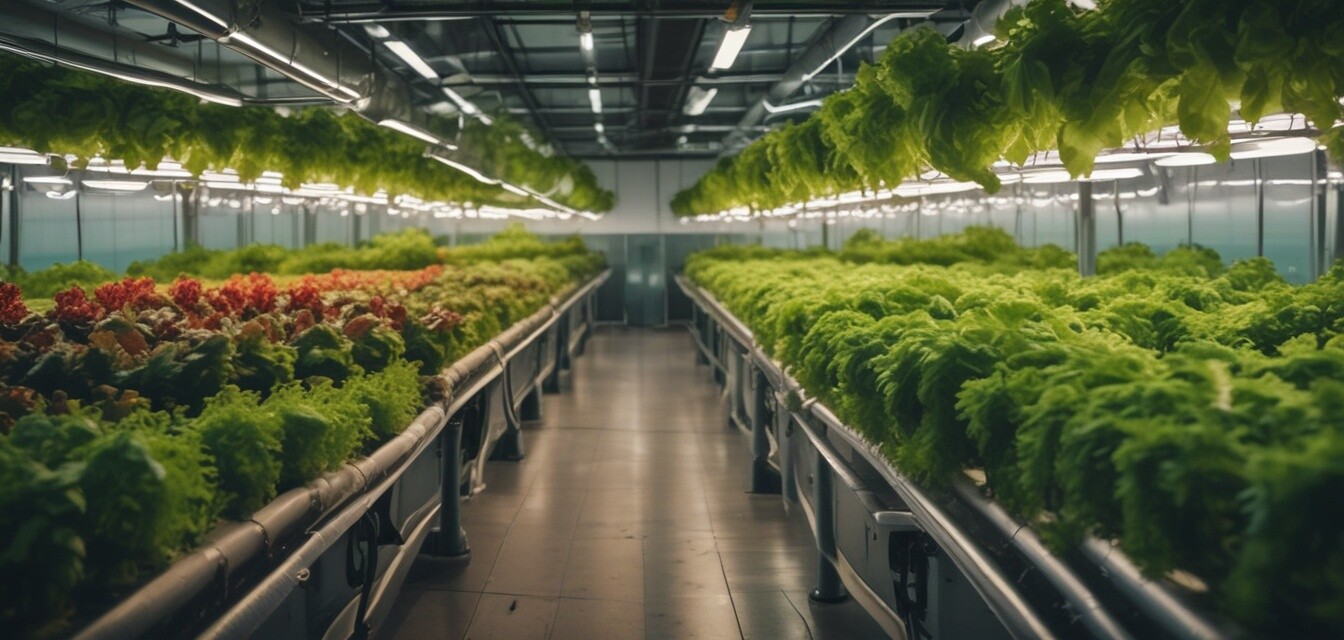
The benefits of hydroponics for climate adaptation
Key Takeaways
- Hydroponics allows for efficient resource use, crucial for food security in changing climates.
- It minimizes the environmental impact of traditional agriculture.
- Hydroponic systems can be implemented in urban and rural settings, providing fresh produce year-round.
- Investing in hydroponics can lead to significant advancements in sustainable farming practices.
As the climate continues to change, ensuring food security and efficient resource use is becoming a top priority. Hydroponic gardening, a method of growing plants in nutrient-rich water without soil, is emerging as a vital solution to meet these needs. In this article, we will explore the various benefits of hydroponics for climate adaptation and how it can lead to a more sustainable future.
What is hydroponic gardening?
Hydroponic gardening utilizes a water-based nutrient solution to grow plants, eliminating the need for soil. This method enables plants to absorb nutrients directly from the liquid, promoting faster growth rates and higher yields compared to traditional techniques.
Types of hydroponic systems
There are several common types of hydroponic systems, each with its advantages:
- Nutrient Film Technique (NFT): A thin film of nutrient-rich water flows over the roots of plants.
- Deep Water Culture (DWC): Plants are suspended in a nutrient solution, with their roots submerged for maximum nutrient uptake.
- Ebb and Flow: Nutrient solution floods the plant roots, then drains back to the reservoir.
- Wick Systems: A simple and passive method that uses a wick to draw nutrients up to the plants.
- Aeroponics: Roots are misted with nutrient solution in an air environment, allowing for oxygen access.
| System Type | Water Usage | Setup Complexity | Plant Growth Speed |
|---|---|---|---|
| NFT | Low | Moderate | Fast |
| DWC | Moderate | Low | Very Fast |
| Ebb and Flow | Moderate | High | Fast |
| Wick Systems | Low | Very Low | Moderate |
| Aeroponics | Very Low | High | Very Fast |
How does hydroponics address climate change?
As climate change leads to unpredictable weather patterns, hydroponics presents unique advantages for agricultural resilience:
- Water Efficiency: Hydroponic systems use up to 90% less water than traditional farming, addressing water scarcity issues.
- Space Utilization: Vertical farming techniques allow for food production in urban settings, maximizing space and resources.
- Consistent Production: Controlled environments lead to year-round crop production, independent of seasonal limitations.
- Reduced Environmental Impact: Hydroponic systems produce fewer carbon emissions compared to conventional agriculture.
Hydroponic gardening and food security
As populations grow, ensuring food security is critical. Hydroponics can help address this by:
- Providing fresh produce in areas with poor soil quality and limited arable land.
- Facilitating local food production, thereby reducing transportation emissions and costs.
- Allowing for a diverse range of crops to be grown in small spaces, enhancing dietary options.
Investing in hydroponic technology
Investing in hydroponic technology can lead to significant advancements in sustainable farming practices. Governments, organizations, and individuals are beginning to recognize the potential of hydroponics in the fight against climate change:
- Research and Development: Funding for hydroponic research can lead to more efficient systems and techniques.
- Education: Increasing public awareness and knowledge of hydroponics can drive adoption and innovation.
- Public-Private Partnerships: Collaboration between government and businesses can further hydroponic initiatives.
Pros
- Efficient use of water and nutrients
- Reduced need for pesticides and herbicides
- Year-round production capability
- Minimal land use and space requirements
Cons
- High initial setup costs
- Requires technical knowledge and skills
- Potential for system failures leading to crop loss
- Dependency on electricity or other energy sources
The future of hydroponics in climate adaptation
As we continue to navigate the effects of climate change, hydroponics offers a robust solution to ensure food security while promoting sustainability. Ongoing technological advancements and increased investment will enable hydroponic systems to thrive, helping us adapt to changing environmental conditions.
To stay updated on the latest news, trends, and advancements in hydroponic gardening, check out our News and Trends section for more insightful articles.
By embracing hydroponic technology, we can pave the way for a greener and more sustainable future, where fresh produce is always within reach, regardless of climate challenges.

